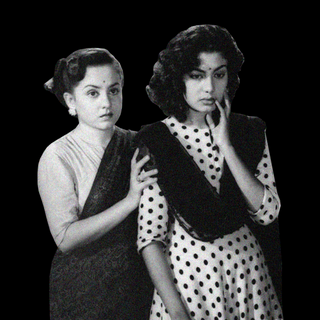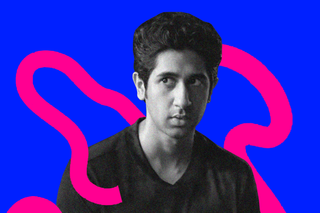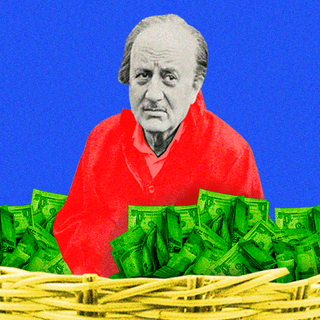
‘Eternally Confused…’ Shows How Self‑Hatred Can Damage Everything From Relationships to Careers
While this is neither the “wokest” show nor a feminist take on dating, the series nails some aspects growing up in a patriarchal society.

Netflix’s Eternally Confused And Eager for Love is framed as a breezy comedy-drama about new-age adult relationships — so breezy, in fact, that it blew past to the end before one could get emotionally invested in the protagonist’s love life. That, however, could also be the result of the show’s central character — Ray, played by Vihaan Samat — being an unlikeable cishet man-child who behaves like a high-schooler; often treating women either as objects to have sex with, or as individuals that need rescuing, while failing spectacularly at doing either. Despite the show’s cast including actors like Rahul Bose and Suchitra Pillai — with both playing endearing characters too — the narrative makes it difficult to connect to them. It’s almost as if Ray’s constant existential whining drowns everything else except for Jim Sarbh’s voice.
Playing Ray’s inner voice, which he ascribes to a toy wizard, Sarbh explains to the viewers — and to Ray — what lies behind his string of failed relationships, failing friendships, and a job he’s fired from. The answer: self-hatred. The show’s antagonist thus lies in an intangible entity — one that is constantly at work to sabotage Ray’s prospects without ever being seen or heard. Eternally Confused, whose popularity may be attributable to its release on the Holi weekend, shows just how damaging self-loathing can be for almost every area of a person’s life.
Ray’s parents set him up on a date with Pari, their family friends’ daughter. Ray, Eager For Love, reaches the restaurant but exits before Pari can even show up — because he thinks she has either agreed to go on a date with him “out of pity” or because “she’s crazy,” and will end up “hating” him eventually.
He’s almost never free from the trappings of self-loathing — because neither does he go to therapy nor does he introspect, despite spending his entire day having conversations with a voice in his own head. So, despite jeopardizing his prospects with Pari, when he gets another shot with her later in the season, he self-sabotages yet again. This time, he manages that by telling her that he’s responsible for her father having a sudden heart attack — and he genuinely believes he is. His self-hatred is so immense that he’s unforgiving of himself for wanting to avoid an awkward dinner, and considers his desire to skip it as being so wrongful that it manifested as an out-of-the-blue heart attack for Pari’s father.
Related on The Swaddle:
Why Socially Anxious People Have Less Satisfying Intimate Relationships
Ray’s self-loathing also imperils his friendship with Riya, who is described as his “only friend” on the show. At one point, he projects his self-hatred onto Riya, asking her, “I’m a nice guy… Why aren’t we dating?” By setting himself up in that manner, it seemed as if he almost either wanted someone else to validate his poor opinion of himself, desperately hoped she would tell him he doesn’t “suck.” The fact that Riya regularly has his back and values their friendship, despite the way he treats her female friends, is something his self-hatred prevents him from acknowledging.
Besides Riya, there’s another person he hangs out with: his “work buddy” Varun. Ray does his best to sabotage that relationship as well while packing his things after being fired from the job. He believes Varun will replace Ray with whoever takes his desk next. The rationale behind this presumption is: first, Ray’s belief that Varun is already too “cool” to be friends with him; second, his assumption that there’s no way “cool” Varun will work towards their existing equation when they don’t have to sit next to each other at work anymore. These ideas, however, are not based on anything Varun ever said or did; on the contrary, Varun appears quite invested in Ray’s love life and often makes plans to hang out with him outside work.
Ray being fired too was a consequence of his self-hatred — albeit an indirect one. He wanted to redeem himself as a good person — so strongly that went out of his way to make a female staff member at work feel “safe.” In order to not frighten the woman into thinking he’s stalking her, he tries to overtake her on a deserted road at night while they’re both walking in the same direction. This, of course, turns out to be so counterproductive that she raises an alarm, leading him to get beaten up, arrested, and subsequently fired for sexually harassing a co-worker. He could have avoided this by simply listening to women who told him it was a ridiculous idea. But, well, his male ego probably led him to think he knew better than them about what would make them feel safer.
Interestingly, a fragile male ego can result in self-loathing, as research suggests. Bred by patriarchal notions of the qualities a man must embody, or the respect he must command, fragile masculinity is the anxiety about not being able to perform toxic masculinity. This might lead one to wonder: was that what was behind Ray’s self-loathing?
Related on The Swaddle:
‘Decoupled’ Tried to Satirize ‘Toxic’ Societal Norms, Ended Up Normalizing Them
Ray performs better than his peers at work, completed his education from another country, lives with his parents in an apartment that seems way too spacious for a middle-class family to be able to afford and doesn’t worry about making rent, goes to “swanky” restaurants and clubs for brunches and parties, and seems inanely unaware of his privilege. His biggest qualms? Not being as “cool” as Varun and not having a “hot” girlfriend. Is that what threatens his masculinity, making him feel inadequate, and driving his social anxiety and self-consciousness? Perhaps, that’s the reason why he jumped at the opportunity to sleep with his boss’s “hot” daughter, who Varun — his masculine idol, of sorts — had expressed a desire to sleep with too.
“Masculinity becomes fragile through its rigidity. When it cannot afford to hold the panoply of gender expressions, sexual cultural orientations, or feminine strength intrinsic to any pluralistic society, then it must lash out, or risk crumbling under the weight of its own culturally-constituted expectations,” Britt East, author of A Gay Man’s Guide to Life, had said.
True to East’s words, Ray not only crumbles often, but lashes out too — at Riya and Varun. Was Eternally Confused intended to be a take on how patriarchy adversely affects men, too, or was it just how I chose to interpret it? There’s no way to tell. While this is neither the “wokest” show on the Internet nor a feminist take on dating, it nails some of the downsides of growing up in a patriarchal society rather well.
If the show returns for another season, it might be interesting to watch whether Ray is able to overcome his self-hatred as he lets go of the toxic ideals of masculinity he had been trying to achieve.
As East had said, “The truth is being a man can mean whatever you want it to mean… You get to decide.” Therein, perhaps, lies Ray’s key to freedom from his social conditioning.
Devrupa Rakshit is an Associate Editor at The Swaddle. She is a lawyer by education, a poet by accident, a painter by shaukh, and autistic by birth. You can find her on Instagram @devruparakshit.
Related


Overrated, Not: Boy Bands
